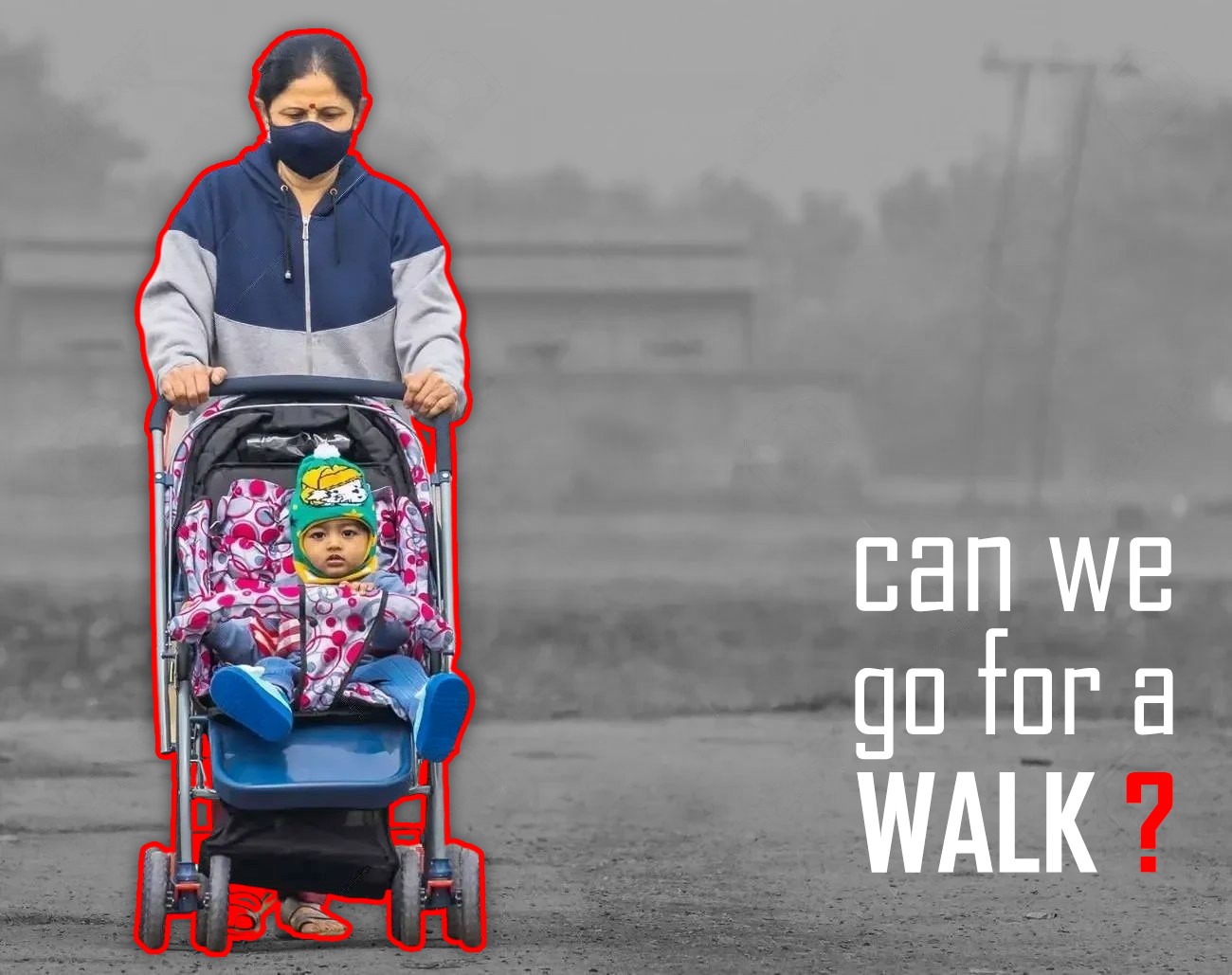
Good morning, I am Radha, mother of one-year-old Kaira. The doctor suggested me to give her sun exposure as sunlight exposure has a lot of health benefits for infants. It helps the body to produce vitamin D that helps the body to absorb calcium and strengthens bones thereby preventing rickets in children. Since we live in the housing tower, we merely get the sunlight on our balcony; that is why Kaira and I decided to take a walk to the park, which is five minutes away from our house. We were looking to get some good sunlight and fresh air. We started our journey with me on foot and Kaira in my pram; this proved to be my worst decision because the dilapidated footpaths, open drains, broken drainage slabs, encroachment by vendors, parking along footpaths, among others, made walking through city roads a nightmare.
Broken drainage slabs and open drains are common scenes along urban roads. Poor quality is one of the reasons why slabs get damaged within a couple of years after being placed over drains. The condition of footpaths and walkways remain pathetic although there are numerous agencies and plenty of funds for ensuring better facilities for pedestrians. With footpaths and pavements being encroached, I was forced to walk on busy roads. In some areas, the encroachments are massive, I even saw the children on their way to school had to walk in the middle of the road.
A few days ago, I spotted an old woman walking, with the support of a walker, on the footpath along Park. She encountered a petty shop on the footpath and was forced to walk on the road. This is the situation in many areas in our locality.
Kerb height, the height of footpaths from the roads, as per Indian Road Congress (IRC) standards should be from 10cm to 15cm. But, the kerb height in some areas is more than 30cm. Wherever the entrances to an institution or shop are connected to the road, the footpaths were made discontinuous to let vehicles pass through smoothly. In such scenarios, it causes difficulty to pedestrians, especially the elderly and people walking with Infant.
I also experienced that the pavements end suddenly before having reached a road crossing or there are roadworks on the pavement without a sign for pedestrians.
Unwanted waste dump is a common sight in the city as garbage is being dumped on footpaths. This point to the erroneous waste collection and treatment system as well as the poor civic sense.
Inaccessible crossings, during my walk I saw that there are quite a few areas where the underpasses or the overhead pedestrian crossings are not accessible for prams, strollers, and wheelchairs. People were forced to run across a wide road. The biggest problem I faced was lack of accessibility at crossings, forcing me to man-handle the stroller and carry it down from the sidewalk so I can push it across the street while waving at cars to stop.
The entire experience is too stressful for me. Taking the baby for a walk in a pram was unpleasant and dangerous. It feels as if we are taking our lives into our hands and hoping for the best.
Lastly, if someone asks me if we can go for a walk, the answer is an absolute No because the city is made for vehicles and doesn’t encourage people to incorporate walking into their daily lives, Now, whenever I want to walk or get some fresh air with Kaira, I have to find a taxi to take us to the park.
About the Author
Nishant Tonk is an Architect & Urban manager who is currently a fellow under India smart city fellowship of MOHUA. He has been a short but integral part of ITCN capacity building programme, NIUA.
Add new comment